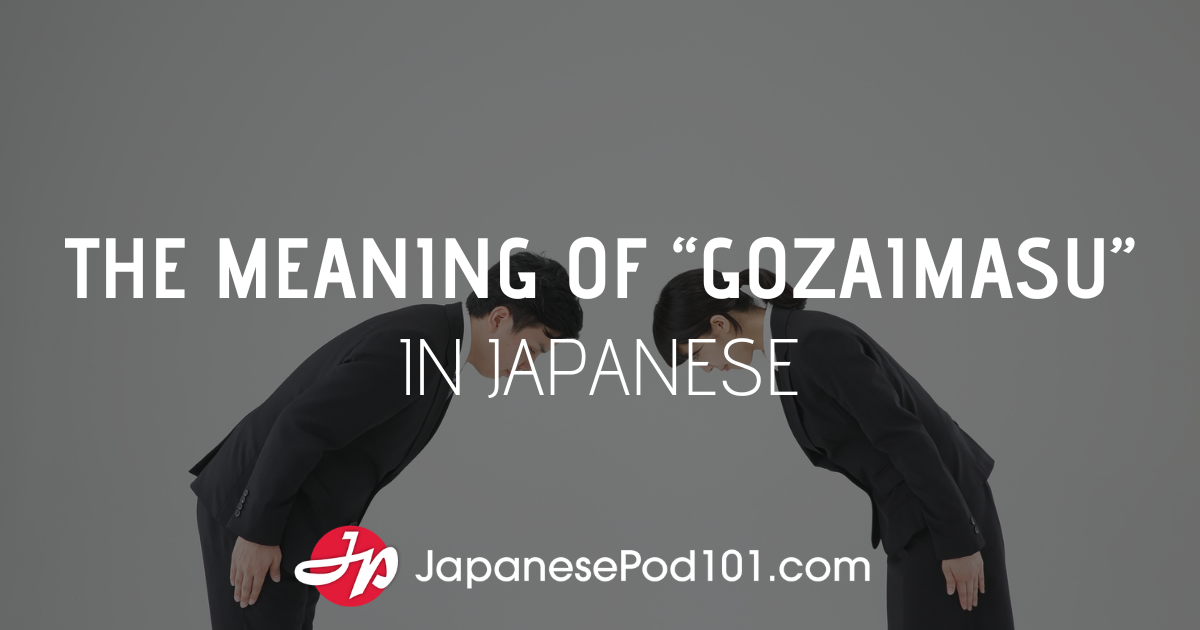Archive for the 'Japanese Lessons' Category
April 10, 2020
Life Event Messages: Happy Birthday in Japanese & More
Giving proper greetings and celebration messages is essential in making relationships better. Whether you have Japanese friends online, live in Japan, or just want to understand Japanese culture, it’s good to know how Japanese people celebrate events and what they say. Once you learn how to say Happy Birthday in Japanese, Happy New Year in Japanese, and Merry Christmas in Japanese, use them practically with your friends!
Japan has various life and annual events to celebrate. Some of them come from the Western culture, such as Christmas and Valentine’s Day. But there are unique Japanese traditions as well, such as the twentieth and sixtieth birthdays, also called 成人 (Seijin) and 還暦 (Kanreki) respectively.
So, how do you wish someone well... Show more
March 24, 2020
Learn the Top 100 Essential Japanese Adjectives
Do you realize how many adjectives you use when you describe or express something, such as feeling, personality, weather conditions, and the size and color of things? Adjectives in Japanese are various and rich in expression, so learning the top 100 Japanese adjectives will greatly improve your conversation skills in Japanese!
It’s not very difficult to learn Japanese adjectives rules, as they work in mostly the same way as they do in English grammar. Before we move onto our list, though, it’s prudent to go over Japanese adjectives rules to give you context.
So first things first: Where do Japanese adjectives go?
For example, a Japanese adjective is placed before a noun: 親切な人 (shinsetsu na hito), meaning "kind person." Or they can... Show more
January 16, 2020
Japanese Conjunctions: Learn Japanese Linking Words
If you’re learning Japanese grammar, you may be surprised by how many variations there are of Japanese conjunctions and Japanese connective particles, and how they vary depending on the use of sentences.
When you think about speaking your mother tongue, the flow of your sentences is very natural, without redundancy or lack of words. This is because you can use conjunctions effectively and naturally to connect sentences.
In this way, in Japanese grammar, conjunctions are one of the most essential parts of speech. When you master Japanese conjunctions, you’ll be able to speak Japanese quite fluently!
By the end of this article, you should have a better idea about Japanese conjunctions meaning, how to use Japanese conjunctions, and have an... Show more
January 6, 2020
Japanese Etiquette and Manners
What is Japanese etiquette?
Japanese culture is well-known for its politeness and unique features, and what is thought to be normal in other countries isn’t always common in Japan. Many foreign tourists wonder what exactly the DO’s and DON’Ts in Japan are when traveling to Japan for the first time.
Japanese people are warm and welcoming to travelers, and they understand if foreign travelers don’t know all the Japanese customs. However, it’s always good to know the basic Japanese etiquette and manners in advance to make your trip more smooth and enjoyable. It’s also a part of experiencing and exploring the Japanese culture.
Here’s our guide to Japanese manners and etiquette, especially for travelers. Here, you’ll find all the Japanese... Show more
December 20, 2019
Japanese Calendar Dates: Reading Dates in Japanese and More
Learning how to read dates is one of the most basic things when learning a new language, and it’s essential in everyday life. For instance, you use dates when making appointments, buying tickets for a particular day, asking for someone’s birthday, etc.
Expressing the date in Japanese isn’t very complicated. The date in Japanese mostly follows the counter system, with just a few exceptions; English, on the other hand, has different names for the months and days of the week.
You’ll be able to learn dates in Japanese much easier once you know Japanese numbers. If you’re not yet familiar with numbers in Japanese, please visit Japanese Numbers on our website.
Table of Contents
How are Dates Usually Expressed in Japanese?
How to Say... Show more
November 21, 2019
Japanese Travel Phrases for an Enjoyable Trip to Japan
Are you traveling to Japan and want to learn practical Japanese travel phrases? This article is designed to help you learn the most useful Japanese words for travel.
It’s always good to learn basic words when you travel to a foreign country. Not only does it make getting around easier, but it also allows you to enjoy communicating with the locals.
In general, Japanese people are not so good at speaking English, free wifi services aren’t very prevalent (especially outside of the central cities), and Japan is still more of a cash-based society than you may think. However, Japanese people are very kind; they’ll listen to you patiently and do their best to help. So just use these basic Japanese travel phrases to talk to Japanese people when... Show more
October 24, 2019
Japanese Numbers: Let’s Master the Basic Japanese Numbers!
Numbers are necessary in everyday life as you need them to express time, record dates, interpret recipe amounts, count objects, and the list goes on. Japanese numerical systems have unique features and they are very different from those in English.
For example, Japanese has a variety of counter words depending on different factors. Further, large numbers are counted by units of four digits while the Western system counts by that of three digits, and the differences only continue for numbers in the Japanese language.
Let’s start to learn basic Japanese numbers with JapanesePod101.com!
Table of Contents
Counting in Japanese: Numbers 0-9
Counting in Japanese: Numbers 10-99
Counting in Japanese: Numbers up to 1000
Counting in Japanese:... Show more
September 12, 2019
How to Say Sorry in Japanese
Greetings are the first thing you learn when you start to learn a new language. “Hello” and “Thank you” are essential, but “Sorry” becomes even more important when it comes to good communication in a foreign culture which often has different customs and values from your original culture. Thus, “sorry” in studying Japanese is one of the most vital things you’ll learn.
One of the noteworthy features of Japanese apologies is that there are various ways to say sorry. How to say sorry in Japanese has variations, both formal and informal, and in the severity of what you’re apologizing for and who you’re apologizing to. Japanese apologies also have to accompany particular gestures in some situations.
Let’s take a detailed look at how to say... Show more
February 7, 2019
How to Say I Love You in Japanese – Romantic Word List
Do you often feel lonely and sad? Do you long for romance and are willing to do whatever it takes to meet that special person? Speaking another language could revolutionize your love life! So, why wait? Learning how to say ‘love’ in Japanese could be just what you need to find it.
Or perhaps you were lucky, and have found your Japanese partner already. Fantastic! Yet, a cross-cultural relationship comes with unique challenges. Learning how to speak your lover’s language will greatly improve your communication and enhance the relationship. At JapanesePod101, our team will teach you all the words, quotes and phrases you need to woo your Japanese lover with excellence! Our tutors provide personal assistance, with plenty of extra... Show more
January 12, 2019
How to Say Hello in Japanese: Practical Japanese Greetings
Greetings are the most important things to learn when learning a new language. Japanese greetings are not only words of greeting, but also reflect the very Japanese culture, much more so than in other languages. Have you heard of the cultural features of Japanese politeness?
Yes, it’s also embedded in the language. The Japanese language has the formal and informal styles, and the formal style is even divided into three honorific languages with different levels of politeness. So in short, you’ll also learn the Japanese culture by learning how to say hello in Japanese.
The Japanese language also has particular greetings only used for particular occasions, such as on the phone, at work places, in the service sector at restaurants and... Show more









